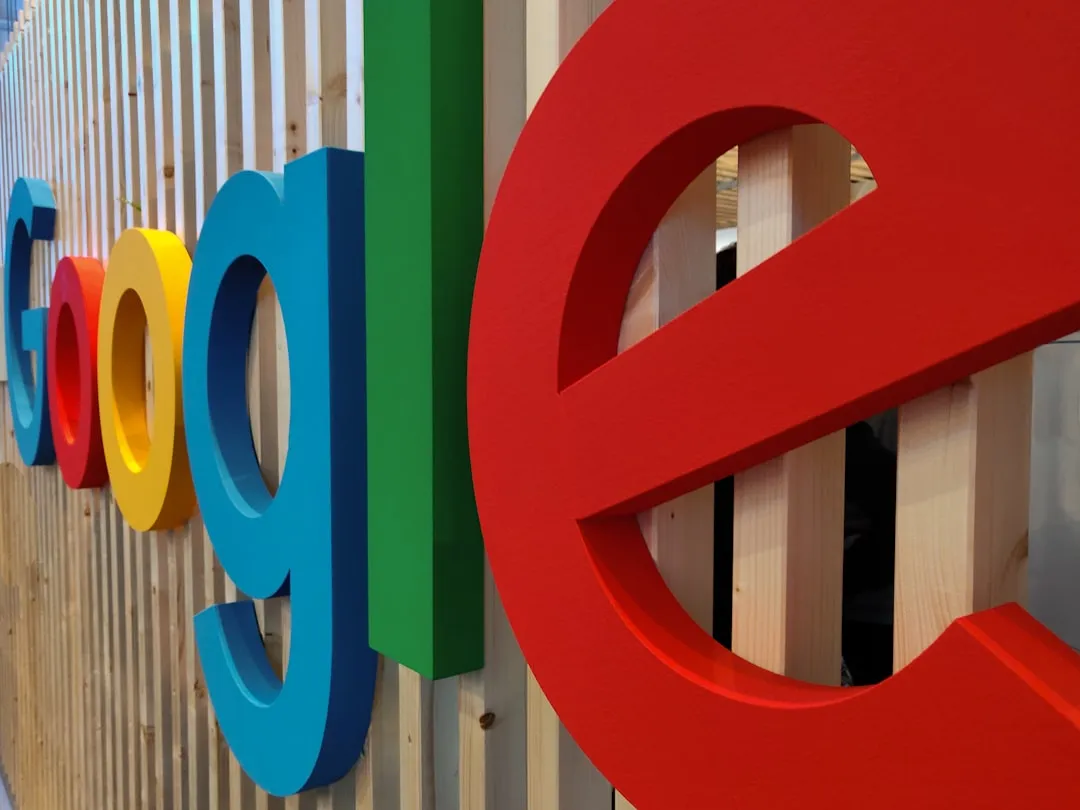When you look at Google's Q3 2025 earnings results, one thing becomes crystal clear. We're witnessing a company that has successfully transformed from an advertising-dependent search giant into a diversified AI powerhouse. Alphabet's record-breaking Q3 revenue of $102.4 billion didn't just beat expectations, it shattered the psychological $100 billion quarterly barrier that no tech company had crossed before.
What makes this milestone pop is how cleanly it reflects Google's AI-era shift. The 16% year-over-year growth rate significantly outpaced Wall Street's expectations of around $99.9 billion, a tidy proof point that massive AI investments are turning into durable growth. The market got the memo fast, with shares jumping over 6% in after-hours trading as investors signaled this was not just a good quarter, it was validation of Google's AI transformation playbook.
AI strategy drives unprecedented growth across all segments
What separates Q3 from routine beats is simple. Each major unit reported showed measurable AI-driven gains, and those gains stacked. According to Marketing Dive, Google's full-stack approach to artificial intelligence is clearly paying off, with improvements in one product lifting adjacent lines.
User behavior is shifting in plain sight. According to Pichai, AI features are driving expansion for Google's core search product, with experiences like AI Overviews and AI Mode contributing to increased growth in overall queries. The lingering fear that AI chatbots like ChatGPT would siphon off queries is not playing out. Instead, Google's own AI upgrades are widening the search pie.
And scale matters. Gemini AI app has reportedly reached over 650 million monthly active users, roughly 10% of the internet, who are using the Google AI interface every month. That kind of audience creates a data feedback loop, a real competitive edge for everything from ranking to recommendations.
Cloud business emerges as the real powerhouse
Search still prints money. The cloud division, though, has become something else entirely, a growth engine that reshapes Google's long-term story. Google Cloud revenue surged 34% to $15.2 billion, beating projections and showing real momentum in winning enterprise share.
The signal gets louder when you look forward. Google Cloud's backlog expanded to $155 billion, committed revenue that gives multi-year visibility. A 46% quarter-over-quarter backlog jump says enterprises are not window shopping; they are locking in.
The deals tell the same story. CEO Sundar Pichai revealed that the company has signed several deals worth over $1 billion through Q3 this year than in the previous two years combined. These are not pilots. They are billion-dollar commitments that make Google a primary partner for AI-heavy transformation.
Massive capital investments signal long-term AI commitment
Google is putting real money behind the AI buildout. Alphabet increased its capital expenditure forecast for 2025 to between $91 billion and $93 billion, an $8 billion bump that shows management leaning into demand.
The plan is targeted, not scattershot. These higher expenditures are specifically targeted at AI infrastructure, because enterprise demand is running ahead of available capacity. Tight supply cuts both ways. It forces heavy investment, and it underscores the premium value of AI infrastructure services.
The takeaway is straightforward. Customer demand for AI technology exceeds available supply, so the current growth looks like the opening chapters of a multi-year expansion as new capacity comes online and serves the pipeline of enterprise AI applications. I would bet this build cycle has legs.
What this means for Google's competitive position
Put the pieces together, record revenue, AI-fueled acceleration, and heavy infrastructure spend, and you get a durable edge. Earnings per share reached $2.87, significantly exceeding estimates of $2.27, while net income surged 33% to $35 billion. Near-term returns are showing up, long-term capabilities are compounding, and rivals will find it hard to chase.
Partnerships add another moat. Google's success in securing major enterprise partnerships, including reports of deals with Meta and Anthropic, suggests that even direct competitors respect the infrastructure. When Meta, a primary advertising rival, chooses Google Cloud for AI needs, it validates the tech, and yes, it turns a competitor's ambitions into Google revenue.
That platform logic creates a flywheel. Anthropic's commitment to Google's custom AI chips at massive scale, paired with Meta's multi-billion dollar cloud deal, positions Google as the go-to backbone for the next wave of AI applications. Success attracts more enterprise workloads, which attracts more success, simple as that.
Bottom line, Google's Q3 2025 results are more than a strong earnings print. They mark the company's shift from an ads business with side projects into a comprehensive AI platform, advertising included, inside a broader tech portfolio. The $100 billion milestone is hard evidence that years of AI investment are paying off now, while building advantages that keep Google in front as the AI-driven digital economy takes shape.























Comments
Be the first, drop a comment!